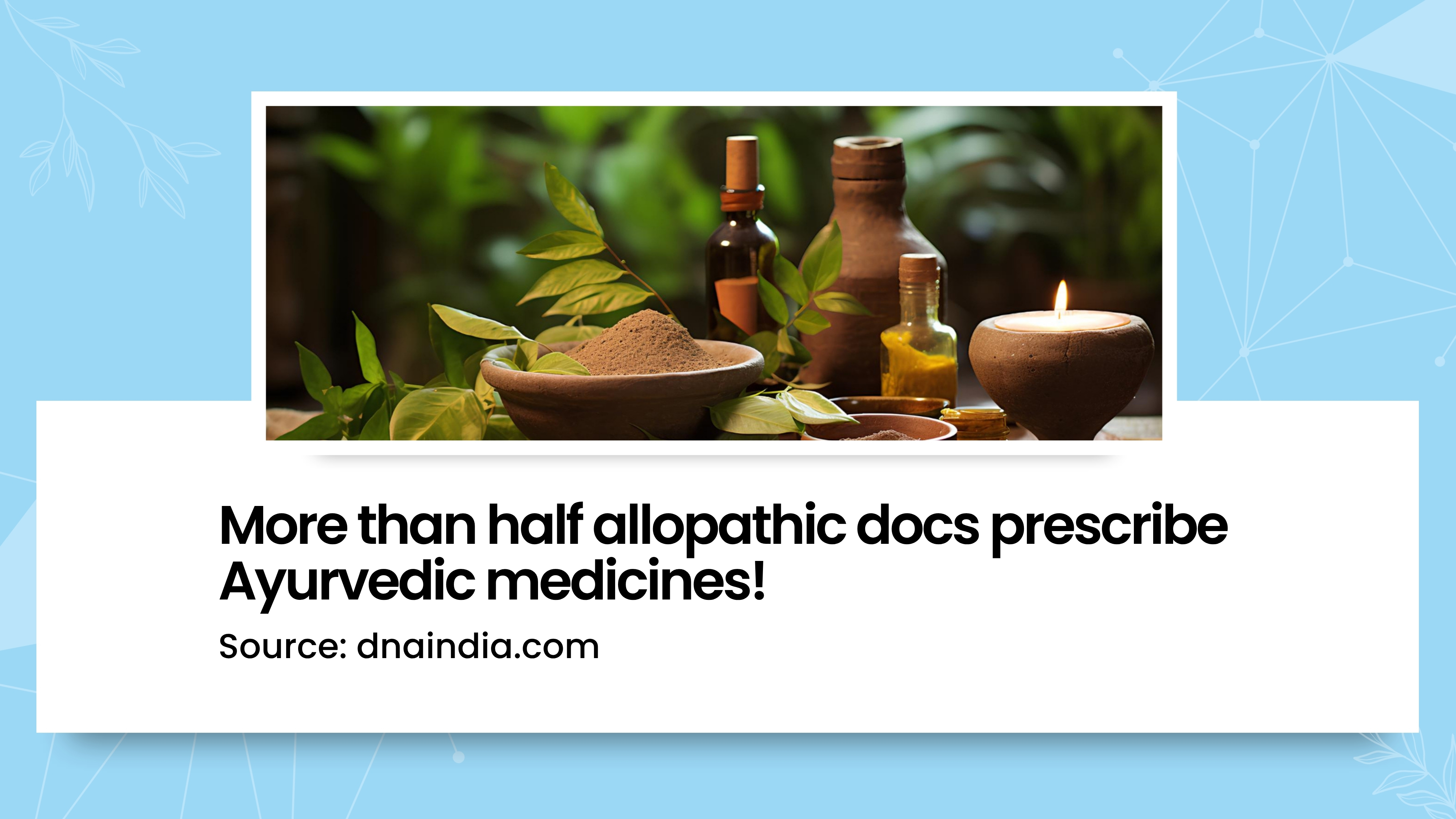More Than Half of Allopathic Doctors Prescribe Ayurvedic Medicines
03-Oct-25 06:13:08

Introduction
In an interesting intersection of modern and traditional medicine, a recent study by the pharmacology department of KEM Hospital has revealed that more than half of practicing allopathic doctors in India prescribe Ayurvedic medicines to their patients.
However, the study also highlighted a concerning gap — while many allopaths prescribe these medicines, most lack adequate knowledge of Ayurveda itself.
Key Findings from the Study
-
67% of allopathic doctors surveyed admitted to prescribing Ayurvedic medicines.
-
99% of resident doctors had not studied the basics of Ayurveda during their medical training.
-
The most commonly prescribed Ayurvedic medicines included:
-
Liv 52 – 39% (for liver disorders)
-
Shatavari – 13% (for female health and reproductive support)
-
Cystone – 12% (for kidney stones and urinary health)
-
-
Common ailments where Ayurvedic medicines were prescribed included liver disorders (34%), arthritis (18%), cough and cold (13%), kidney stones (11%), and piles (10%).
Expert Opinions
Dr. Subodh Kedia, former president of the General Practitioners Association, warned against the growing trend of cross-prescription.
“I have never encouraged cross-section practice. One who is not aware of the medicines shouldn’t prescribe them,” he said.
On the other hand, Dr. K.R. Kohli, Dean of R.A. Podar Ayurved Medical College, acknowledged that while allopaths prescribing Ayurvedic medicines is not legally allowed, he was not against the practice — provided doctors are educated about the medicines they recommend.
“At least 90% of these doctors rely on the reputation of the manufacturer rather than understanding the medicine itself. This needs to change,” Dr. Kohli emphasized.
Implications for Healthcare
This study highlights two major issues:
-
Integration without Knowledge – While Ayurveda is being integrated informally into modern practice, there is little structured education or training for allopathic doctors in Ayurvedic medicine.
-
Need for Collaborative Learning – There is a growing demand to build bridges between Ayurveda and modern medicine through structured courses, cross-disciplinary workshops, and awareness programs.
Conclusion
The rising prescription of Ayurvedic medicines by allopathic doctors reflects growing trust in Ayurveda among patients and practitioners alike. However, it also raises concerns about the lack of formal knowledge among those prescribing.
Experts stress the need for greater collaboration between Ayurveda and Allopathy, ensuring that patients receive safe, evidence-based care.
âś… Source: Study conducted by Pharmacology Department, KEM Hospital (as reported in national media) DNA INDIA